In early June, stories in corporate media outlets, such as U.S. News & World Report (USNWR), CBS News, Forbes, and the Washington Post, carried headlines touting predictions made by “experts,” at the National Oceanic and Atmospheric Administration, who issued their annual Hurricane Season Forecast for 2022 in late May. The mainstream media alarmingly proclaimed the forecast was for a “Busy Atlantic Hurricane Season.” Data which existed when NOAA made its forecast should have suggested a busy hurricane season was, in fact, unlikely. Indeed, a recent story from NBC Miami reports that although the official “hurricane season” began in June, below average sea surface temperatures in the region where tropical storms and hurricanes are typically generated have suppressed their ability to form and remain stable, so far.
“Federal meteorologists are forecasting a record-shattering seventh straight unusually busy Atlantic hurricane season,” said an Associated Press article by Seth Borenstein, carried by USNWR.
NOAA stated, “climate factors, including the ongoing La Niña that is likely to persist throughout the hurricane season, warmer-than-average sea surface temperatures in the Atlantic Ocean and Caribbean Sea, weaker tropical Atlantic trade winds and an enhanced west African monsoon,” were likely to result in an above average hurricane season. (Emphasis, Climate Realism)
“NOAA’s outlook for the 2022 Atlantic hurricane season, which extends from June 1 to November 30, predicts a 65% chance of an above-normal season, a 25% chance of a near-normal season and a 10% chance of a below-normal season,” said NOAA.
“As we come to the end of July, the tropical Atlantic remains in a prolonged dormant stretch,” wrote John Morales of NBC 6, Miami on July 27. “The last tropical storm was named Colin … was very short-lived, lasting all of one day, and dissipated near the Carolinas on July 3rd.
“It is hard to remember when the last time a hurricane season went a whole month without a storm,” Morales continued. “The reason it has been quiet is twofold: upper-level winds are unfavorable for tropical storm formation, and sea surface temperatures are cooler than normal in the main development region of the Atlantic between Africa and the Antilles.”
Morales reports ocean temperature readings from the coast of Africa to the eastern end of the Caribbean, where tropical storm and hurricanes usually form, are one to two degrees below normal for this time of year.
The colder than normal ocean water and unfavorable wind currents resulted in the three named tropical storms that formed in the Atlantic basin this year dissipating quickly.
“As far as the number of days with a named storm, that’s where we’re running slow. We’ve had three and the normal by this date is eight,” writes Morales. “So, by that measure, we’ve had less than half of the activity in the Atlantic than we normally would.”
Contrary to NOAA’s assertions, sea surface temperatures are lower, not higher than average—and no, in case anyone is wondering, ocean temperatures in the region did not appreciably decline between May and the end of July. Nor have upper level winds acted the way NOAA claimed they would. Although the peak of the tropical storm/hurricane season has yet to arrive, so far at least, it is below average in the respects that matter. No hurricanes have made landfall or even formed, and the few tropical storms that have arisen dissipated much more quickly than is usual. Contrary to NOAA’s claims, climate conditions have, in fact, been quite unfavorable to hurricane formation. This is good news for the public.
Numerous articles on Climate Realism, here, here, and here, for example, have refuted climate alarmists’ repeated claims that hurricanes have been increasing in frequency or intensity. They haven’t.
To conclude, although conditions may change, so far it’s been a slow start to what NOAA forecast would be a “busy” or “above-average” hurricane season.


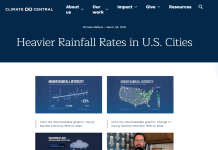
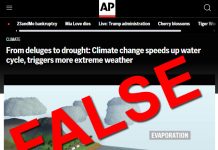




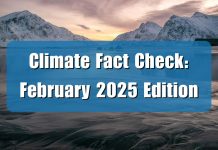
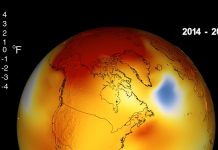
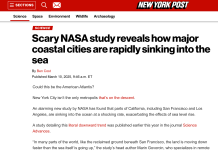


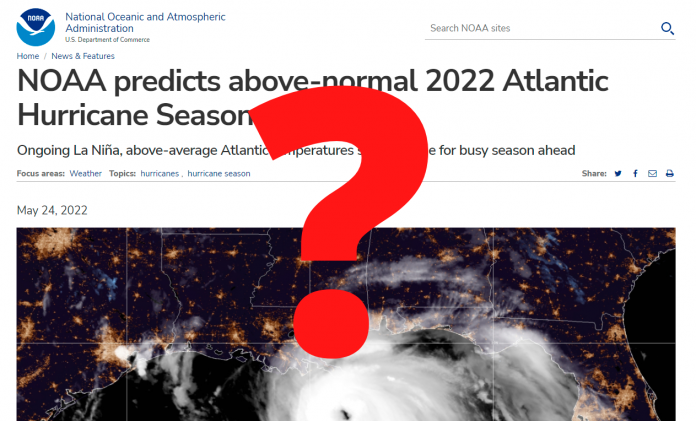




As a publicly-funded body, NOAA has an obligation to present its data and thinking behind such forecasts, so how do they come to conclusions that are not supported by the evidence?